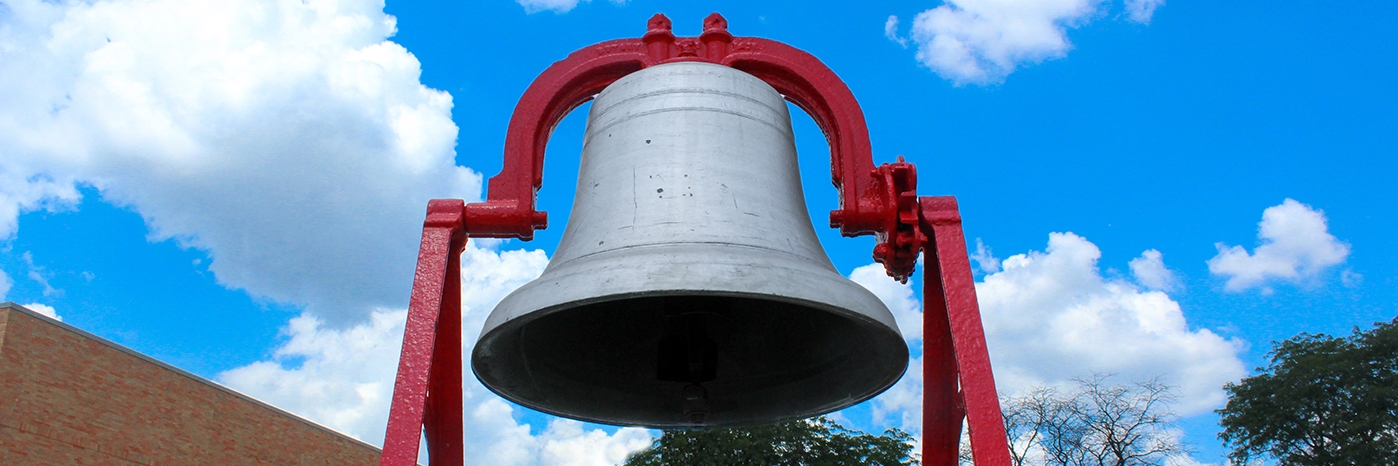Voices Ringing
Three alumni reflect on their Carroll Mathematics experiences
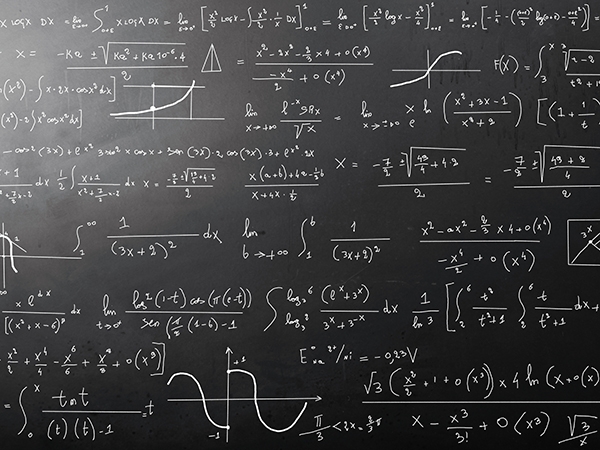
The Carroll Math Department strives to develop students into persistent problem solvers and resilient learners. Carroll students not only learn course-specific math content, but they also learn to collaborate with fellow problem solvers, use constructive feedback to produce better results, and feel comfortable asking for guidance. We want our students to graduate from Carroll with the confidence that when faced with a challenge, they can analyze the situation and produce a meaningful solution.
We are proud of the accomplishments that Carroll graduates have achieved post-graduation. Our graduates are true testaments to the success of our math curriculum. A few recent graduates were asked how their Carroll math program experience prepared them for life after high school and what words of wisdom they have for current Patriots:
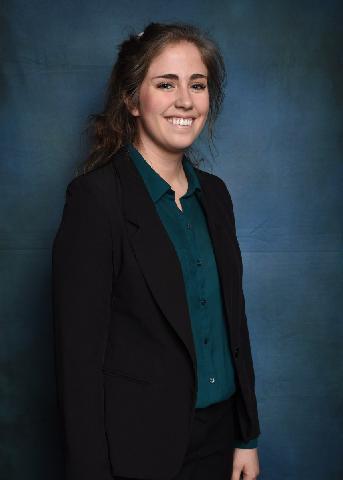 Emily Seals ‘14
Emily Seals ‘14
Emily is a 2018 graduate of The University of Dayton with a degree in Applied Mathematics and Economics and currently holds the position of Analyst to the CEO and Human Resources Department at SafeAuto in Columbus, Ohio.
The structure of many of my classes while at Carroll has proved helpful to my transition and success into college and my career. They taught me discipline; discipline to pay attention in class, discipline to complete daily homework, and discipline to keep myself accountable for my grades and ask for help when it just didn't make sense. In college, not all professors collect homework (sounds amazing, right?). When you find that out, it becomes very tempting to skip the professors’ suggested practice problems. However, with the discipline I took with me from Carroll, I knew that would cost me come test day. That's why I did every practice problem given to prepare me for success come test day. I've brought this discipline and work ethic with me into my career which has helped lead me to success each and every day. I really valued my statistics class with Mrs. Mary Ollier. Although I struggled with getting it to click for me, the first math course I took at the University of Dayton was statistics, and I remember feeling so thankful having gone through it once at Carroll. It really helped set the groundwork for building it up at UD.
Words of Wisdom
Ask the question. The biggest thing I learned from my math classes was overall problem-solving skills. Gather information, try to solve the problem (probably several ways), and if all else fails, never hesitate to ask for help. I remember sitting in Mrs. Grosselin's class sometimes feeling silly asking for help but still asking anyway. In my work today, I still often get this feeling, but how can you effectively produce work and do your job if you don't even understand what you're doing? Never feel silly asking questions; no one knows everything, and continual learning is part of being human.
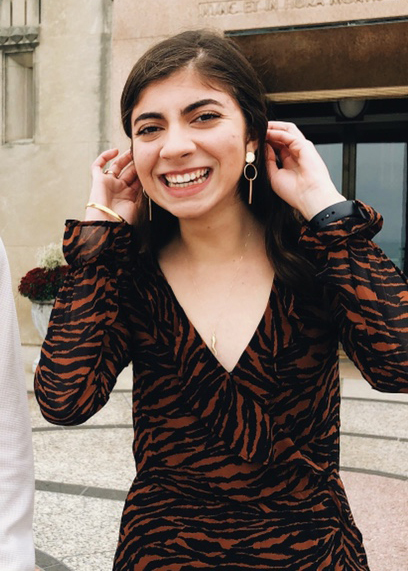 Audrey Marticello ‘18
Audrey Marticello ‘18
Audrey is a junior at Loyola University Chicago studying Finance with a minor in Economics. She is a Calculus tutor at Loyola, participates in an Equity Investing club, and just finished a Business Analytics Co-Op where her role was running statistical analysis. Her goals have changed over the years, but she would like to work in a finance role after graduation and attend graduate school. She has an internship lined up for the summer where she will be a commercial banking intern for BMO Harris in Chicago. Her role will be helping the bank with lending decisions, financial analysis, and risk assessments.
One of my key takeaways from my Carroll Math classes is to not be afraid to ask questions. When I was a freshman at Carroll, I struggled in math and science because I was afraid to look dumb in front of my peers, but my math teachers saw potential in me and pushed me to improve. As I became an upperclassman and felt more comfortable, I began seeking to understand. I would ask more questions in class, start study groups with friends, and pop in after school to review homework answers. Unsurprisingly, my grades improved. So, when transitioning to college, I committed myself to seek to understand. This mantra has benefited me in all facets of life—from my finance classes to my internships, and it’s all thanks to my time at Carroll.
Words of Wisdom
Practice makes perfect. The Carroll Math department, as a whole, puts a huge emphasis on practice. I distinctly remember Mrs. Ollier, my freshman year assigning many practice problems for homework. I did not understand at the time, but she was instilling in us the fundamental piece of learning—practice. This key to success, that practice makes perfect, has allowed me to be resilient when facing failure and overcome rigorous courses.
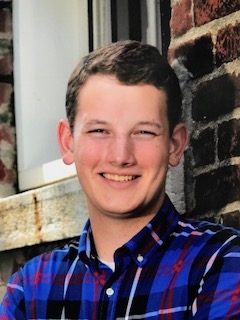 Quinn Retzloff ‘18
Quinn Retzloff ‘18
Quinn is a junior at the University of Notre Dame studying Science-PreProfessional with a minor in Compassionate Care in Medicine. He is a Chemistry and Calculus tutor for the Learning Resource Center and an English literacy teacher for the greater South Bend community. He is involved with the Hillebrand Center for Compassionate Care in Medicine research team, actively seeking techniques to help doctors and other healthcare professionals maintain a caring, compassionate mindset as the foundation of their healthcare practice and as a remedy to the effects of burnout, especially during COVID-19. After graduation, he wants to pursue an MD degree and practice as Cardiothoracic surgeon.
Carroll's mathematics courses and faculty emboldened my confidence to approach math with a unique perspective. Coming from Carroll, where I took Honors and AP courses in Geometry, Algebra, Physics, and Calculus, I was placed at an advantage in comparison with many of my peers. Carroll’s emphasis on the fundamentals of mathematics provided the basis of not only solving complex problems in my STEM courses but more importantly, grasping the concepts that gave me insight into finding the respective solutions. Carroll’s focus on highlighting the theory gave me a step ahead in my ability to ask the deeper questions and analyze problems and patterns with a keen eye, as well as the tenacity to persist when courses became challenging. I also appreciate how Carroll’s difficult courses forced me to grapple with important concepts from proofs to derivatives in a supportive environment. The ability to learn with peers, receive constructive feedback from teachers, and complete guided assignments both in and outside class, made the courses not only manageable but meaningful. Simply put, my college math courses seemed only supplementary to the Carroll math core.
The most memorable Carroll math experience for me was the TEAMS competition at Ohio Northern University each year. It gave me and my friends the chance to work together to problem-solve a real-world scenario (my senior year was waste management sustainability) and come up with a viable solution. Different team members were responsible for “mastering” their section and served as a wealth of knowledge for that specific category, whether it be the energy of the system or how it works. In the end, it was just fun to communicate with the Carroll teams and other Ohio schools in how they approached the same types of problems.
Words of Wisdom
Math and problem-solving present themselves every day and it’s those who recognize this fact that make a difference. You might not always have to calculate a derivative or perform a square root, but these skills taught early on in education encourage you to learn how to think critically, analyze a situation, and produce a thoughtful solution.


